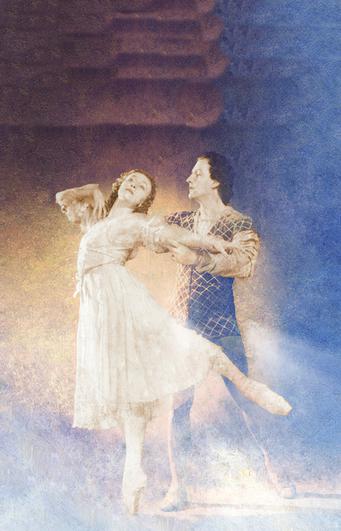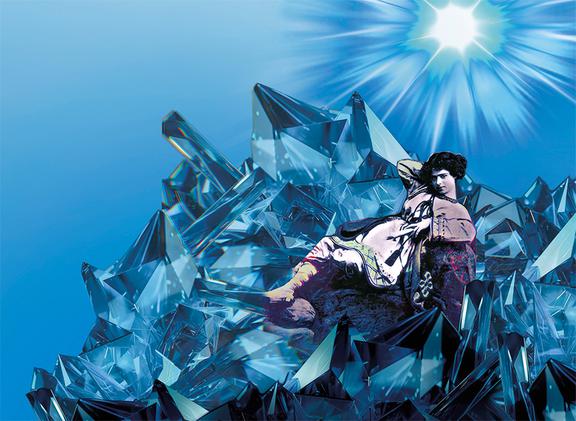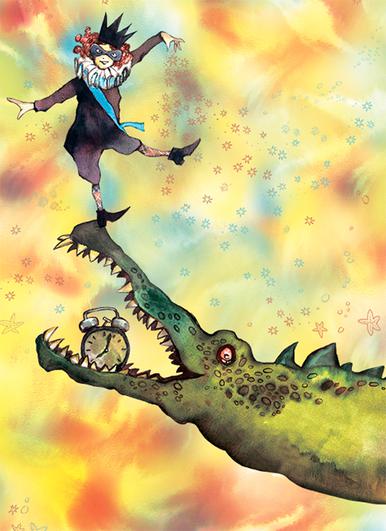Il Trovatore, along with Rigoletto and La Traviata, is included in the so-called triad, which marks the beginning of the period of the composer’s creative maturity, and practically is not inferior to them in popularity. The latter came to this opera immediately, at the premiere, held in Rome in 1853. Soon after, it became nation-wide. Heated passions, the main characters’ desire to defend their freedom, the inability to banish the ghosts of the past and the inevitability of retribution, expressed in bright, memorable melodies, invariably “force” the audience to listen, and theatres – to stage this opera. It is loved by singers and choirmasters; it is the richest material for the four types of voices and choir. Some choirs turned out to be in demand even by mass culture and burst out to the people from their television screens.
Premiere-2023
Concert performances at the Bolshoi brought together a star cast. The part of Leonora is sung by Hibla Gerzmava, the favourite of music lovers the world over. She has recently performed this part in Barcelona at the Gran Teatre del Liceu, having repeated that brilliant success which followed her performance from a few years earlier at the premiere of the opera Il Trovatore at the Teatro Real in Madrid.
The part of Azucena will be a debut for a soloist of the opera troupe, Agunda Kulaeva, who has gained fame as Carmen, Lyubasha (The Tsar’s Bride) and Marina Mnishek (Boris Godunov). Amongst the central parts of her repertoire in the Bolshoi productions are also Princess Eboli (Don Carlo), Lyubov (Mazeppa) and Polina (The Queen of Spades).
As for Igor Golovatenko, one of the leading baritones of the Bolshoi and a guest soloist at the major opera houses of the world, Count di Luna is one of his star roles. He has performed it at the Novaya Opera (Moscow), the Tatar Opera and Ballet Theatre (Kazan), The Latvian National Opera (Riga), the Opéra de Lille (France), the Grand Théâtre de Luxembourg and the Bavarian State Opera (Munich).
Oleg Dolgov, also engaged in all but a few of the opera performances and premieres at the Bolshoi, was remembered by the Moscow public for his performances as Manrico at the Novaya Opera and as part of the State Symphony Cappella of Russia.
Maestro Jordi Bernàcer, a conductor of Spanish origin, who in one capacity or another (mostly as an assistant) has collaborated with outstanding masters of the conducting art, including such significant figures as Riccardo Chailly, Lorin Maazel, Valery Gergiev and Zubin Meta, became Music Director. He successfully performs at the opera houses in Spain, Italy, Germany and the USA, being a recognized interpreter of the Verdi repertoire.
Il Trovatore at the Bolshoi: 1856–1998
The story of Il Trovatore at the Bolshoi Theatre is old and eventful. This opera was first performed in Moscow by the Italian opera troupe of the Directorate of Imperial Theatres, being presented on the occasion of two truly monumental events — the coronation of Alexander II and the opening of the building of the Bolshoi Theatre, restored after a fire (Il Trovatore was one of the first performances at the refurbished building), that is, only three years after its Rome premiere. As in Italy, the audience was extremely pleased with the opera, and since then it has rarely left the Moscow theatre stage. In the 1880s, the Italian troupe performed it every season (with the participation of Adeline Patti as Leonora).
However, the subject of special pride of the Bolshoi is that it was the very theatre at which the first production on the Russian stage took place (on the 7th of January 1859). It was carried out in-house, with the participation of its “own” artists – and in Russian. In 1867 this production was resumed. And on the 30th of November 1889, the premiere of a new production took place, however, it used the set created for previous performances.
In 1933-37 Il Trovatore was shown on the stage of the ex-Zimin Opera, which was then a branch of the Bolshoi, and now is the building of the Moscow Operetta Theatre. In 1972 the new production was realised on the stage of the Historic building itself. This version was to run for seventeen years and somewhere in the middle of its creative path it migrated to the stage of the Kremlin Palace of Congresses (now the State Kremlin Palace), thus becoming much more accessible to a wide range of opera fans.
In 1993, the grandest renewal to date was undertaken, as a result of which Il Trovatore began to be sung in its original, Italian language. The last performance of the renewed production took place on the 12th of February 1998. Since then, it has not been performed at the Bolshoi, so it can be said that the theatre returns this opera to its repertoire almost exactly twenty-five years after the last time it “heard” applause addressed to it.
In the 30s, and the 70s-90s of the previous century, outstanding artists of the Bolshoi and guest stars shone in the opera Il trovatore. Leading roles were performed by Elena Katulskaya, Valeria Barsova, Maria Maksakova, Bronislava Zlatogorova, Panteleimon Nortsov, Maria Bieshu, Tamara Milashkina, Makvala Kasrashvili, Galina Kalinina, Kira Leonova, Irina Arkhipova, Elena Obraztsova, Tamara Sinyavskaya, Yuri Mazurok, Yuri Gulyaev, Sergei Leiferkus, Zurab Sotkilava, Vladislav Piavko, Vladimir Atlantov and many other stars. In 1933 the conductor was maestro Vassili Nebolsin, in 1972 — Fuat Mansurov. The well-known German opera director Erhard Fischer was invited to the production in 1972.
From the history of its creation
It is believed that the plot of Antonio Gutiérrez’s drama, which in turn became the foundation for the libretto of Verdi’s opera of the same name, is based on real events that unfolded in Spain in the 15th century. This point once again proves that reality can be as incredible as the flight of the most unbridled imagination of an artist.
Verdi was fascinated by the blood-soaked conflicts of Spanish drama, the nakedness of the confrontation, the clash of bold characters and the invincible will of human personality, which simply cannot submit to oppression, but must emerge victorious. However, several years passed between the birth of idea and its implementation: the composer was dissatisfied with the first version of the libretto, written by his faithful colleague, poet and playwright Salvadore Cammarano. The librettist was not destined to finish the second version. Due to his sudden death, the libretto was completed by a young poet Leone Bardare.
All this did not contribute to the onset of clarity in the presentation of gloomy events and logic in the intricacies of heart-rending intrigues. The libretto is considered one of the most complicated and not fully explained in the history of opera. Which is a particular stumbling-block for directors who take on the production of Il Trovatore. As well as the fact that many of the key events take place “behind the scenes”, only in the retelling of the actors. Nevertheless, most directors manage to resolve these difficulties. But the need to recognize the events of the past, which come to life exclusively in the dramatically tense stories of the characters, is just an additional reason to listen to this opera in a concert version.
* The statement belongs to the famous Russian music and literature critic of the second half of the 19th century, Herman Laroche.


